Whānau
Our people
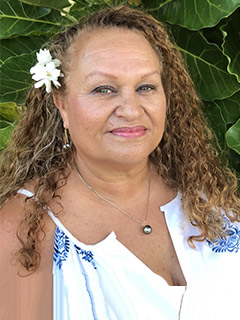
Tania is a professor, director of Te Ipukarea Research Institute and Te Pou Māori (Associate Dean: Māori). Her background is in Māori education, with specific interest in immersion Māori language education. Tania has been an educator in tertiary education for 30+ years using the cultural values and knowledge transmitted to her by her Māori and Pacific elders to advocate for Indigenous epistemologies, pedagogies and methodologies. She has been involved in Māori language revitalisation interventions for 39 years, which has expanded to the Pacific, working with communities to create digital language resources.
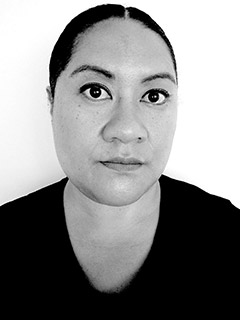
Cecelia has been an artist, designer and educator of design and technology for over 20 years in Aotearoa New Zealand. She constantly looks for better ways to inform, empower, uplift and prepare people for complex situations using creativity. Her most recent practice positions faiva - performance art and or design as a way for young people, in particular, to create and express themselves for better wellbeing.
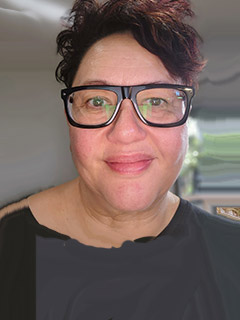
Tania is a mother to one, step-mum of four and nani to one mokopuna. She is the executive administrator in Te Ipukarea's research office and works closely with the Associate Dean: Māori for the faculty. Tania has a Master of Professional Business Studies and a Master of Philosophy. Her background is in tertiary administration.
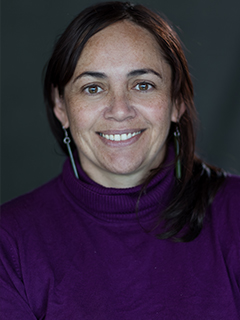
Hazel is a lecturer in Te Ipukarea Research Institute and teaches on the course Mahitahi | Collaborative Practices. Her recent doctoral thesis from AUT examined ways the New Zealand education system could use Māori whānau voice and indigenous knowledge to address systemic change due to the continual transmission of intergenerational cultural and historical trauma. Hazel also has a Bachelor of Education, Diploma in Primary Teaching, and a Master of Educational Leadership and Management.
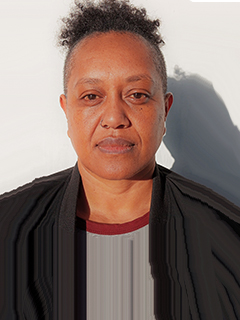
Nooroa is an interdisciplinary artist with varying interconnected strands to practise their research and explores indigenous cosmologies through a digital sculptural practice where the extent digital technologies can reconnect a haptic encounter with ancestors and ancient knowledge as well as explore how self-manifestations occur as multiple and intergenerational assemblages and the ambiguity of communication through code-switching with material cultures.
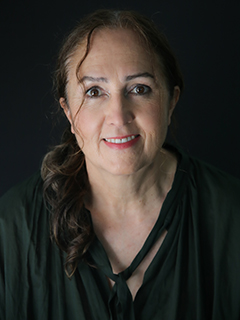
Amanda works with councils, iwi and communities exploring place-based, indigenous-led strategies and actions for urban transformation in an era of climate and biodiversity emergency. She is an associate professor in AUT's Huri Te Ao, the School of Future Environments. Amanda is the programme leader and principal investigator of the Urban Wellbeing Research Programme in New Zealand’s National Science Challenge (NSC) Building Better Homes, Towns and Cities (BBHTC). She directs He Puna Ora, a regenerative action lab focused on urban system change, and is the co-curator of Whakaora.
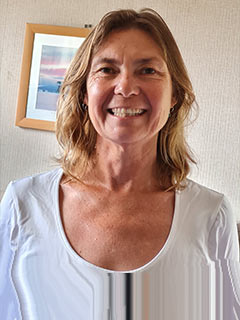
Kerri is a senior lecturer in the Department of Mathematical Sciences. Kerri specialises in mathematical modelling education, transitional education and mathematics education in general. Kerri previously was the programme leader for AUT's Certificate in Science and Technology; designed to address the inequalities experienced in New Zealand’s pre-tertiary education system by Māori and Pasifika. Kerri is the New Zealand co-ordinator for the annual International Mathematical Modelling Competition.
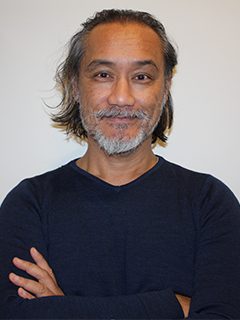
Albert is a research leader in the Pacific spatial and architectural environment field with extensive research and publication in the area, supported by his teaching and lecturing in the last 20 years. He has served on community and academic boards relating to Pacific culture, art and education, as well as publishing works on the indigenous spatial environment and knowledge. Albert's current research is on Pacific concepts of space and rethinking how Pacific people can create new modes of working and notions of place and citizenship in the diaspora.
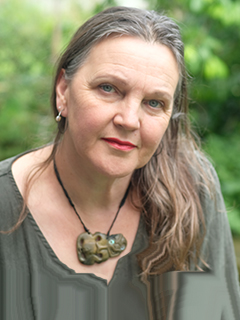
Fleur is an architect and Ngā Aho representative with an interest in papakāinga (Māori housing) development and supporting Māori communities displaced through colonisation. Spatial justice, sustainable housing, collaborative practice, regenerative futures, and promoting mātauranga Māori (Māori knowledge) in the creation of our built environments, form the principal components to her practice-based research interests.
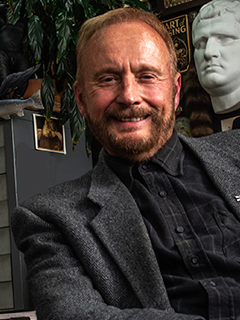
Welby is an elected Fellow of the British Royal Society of Arts and a consultant to many international organisations on issues of creativity and learning. He is also an award-winning academic, designer, filmmaker and playwright. Welby has taught at all levels of the New Zealand education system and remains an outspoken critic of its 'obsession' with assessing performance. In 2001 he was awarded the Prime Minister's inaugural Supreme Award for Tertiary Teaching Excellence. He completed his PhD on the structure and profiles of narrative music videos and TV commercials.
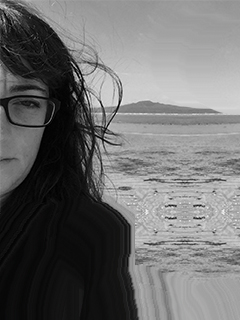
Sibyl is a landscape architect and senior lecturer at Huri Te Ao – School of Future Environments. Sibyl has a Bachelor of Design in interior architecture and MLA (Professional) from Victoria University of Wellington, with over ten years of teaching experience in architecture and landscape architecture.
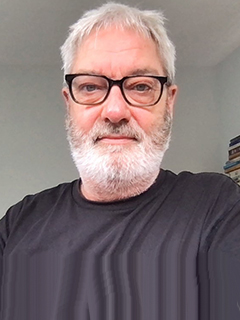
Greg worked as a reporter, photographer and newspaper editor before he joined AUT as a journalism lecturer in 2005. He completed a PhD on the loss of freedom of information experienced by public-interest journalists in Aotearoa New Zealand. His research is in journalism studies, with a focus on state transparency and public trust.
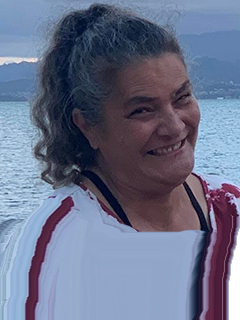
Jenni is a lecturer in Te Kura Toi a Hoahoa - School of Art and Design and the programme director for Te Tohu Paetahi mō te Hoahoa - Bachelor of Design. Jenni’s research is about the identity journeys of Māori adoptees under closed adoption in Aotearoa. She has contributed to the adoption law reform currently underway and joined the Redress Advisory Group for the Abuse in Care – Royal Commission of Inquiry.
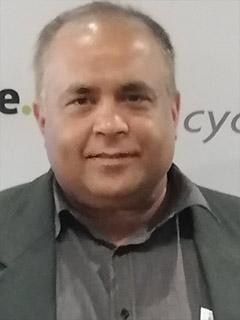
Ramesh is a senior lecturer active in research within agile software engineering processes and practices and agile project management. Ramesh has served on the programme committee for conferences and peer-reviewed journals. He has supervised doctoral and master's students in the areas of his expertise and on interdisciplinary topics such as data mining.
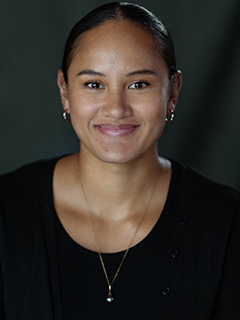
A proud Cook Islander hailing from Te Au o Tonga, Enuamanu and Manihiki, Pare has completed her Bachelor of Business with Economics and Finance majors and a Sustainable Enterprise minor. She currently works within the faculty's finance team and is on her journey of Te Reo Kuki Airani.
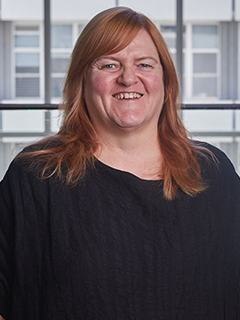
Monique is a practising artist who works within social art practice, installation, temporary and event-based practices. Monique’s artwork is formed primarily through collaborative, material, and photographic processes focusing on the event as a durational space for everyday gestures of exchange and reciprocity. She is a founding and active member of Public Share collective (since 2014) and completed a PhD at Deakin University in Melbourne, Australia (2020), titled: “The Event within Temporary Practices and the Public Social”.
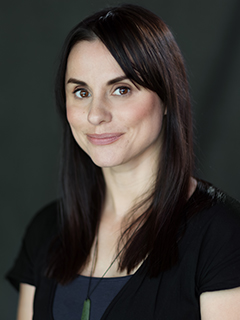
Rebecca joined Te Kura Whakapāho as part of the 2019 Eke Tangaroa cohort. Now a senior lecturer in the Critical Media Studies Department, she teaches primarily on the common first-year courses, as well as the faculty course Mahitahi | Collaborative Practices. Her PhD studied four global formats in the reality television genre, particularly hybrid characteristics linking with soap-opera, liveness, regionality, and digital engagement. You’ll often find her referring to Taylor Swift, Star Wars and the Kardashians to explain theory in the classroom, while sharing the latest antics of her two cats.
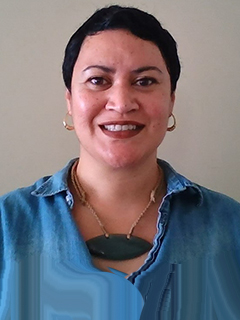
Tui is a research fellow at AUT in the School of Communication Studies. She has completed her doctoral thesis on constructing indigenous identities through creativity and exploring the Māori and Pacific identities through dance, visual arts, and creative writing.
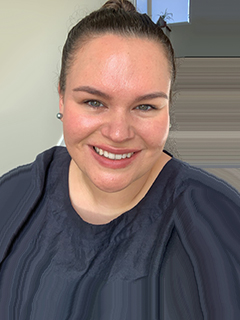
Rachael is an associate professor in Te Ipukarea Research Institute. Rachael has a background in te reo Māori, Māori culture and traditions and Indigenous politics. Rachael holds a Bachelor of Arts with Honours (First Class) and a Master of Arts (with Distinction) from the University of Otago, and a doctorate from AUT. She is a graduate of Te Panekiretanga o te Reo (Institute of Excellence in the Māori Language) and holds the Te Taura Whiri i te Reo Māori Certificate of Competency in Interpreting and Translating the Māori Language.
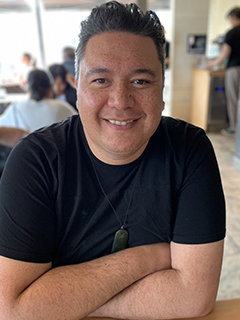
Dean is Māori and hails from the Waikato tribe. He is an associate professor in Te Ipukarea Research Institute, and his research background incorporates te reo me ngā tikanga Māori, popular culture, digital identities, video games and language revitalisation. As well as earning his doctorate at AUT in 2010, Dean is a graduate of Te Panekiretanga o te Reo (Institute of Excellence in the Māori Language). and holds the Te Taura Whiri i te Reo Māori Certificate of Competency in Interpreting and Translating the Māori Language.
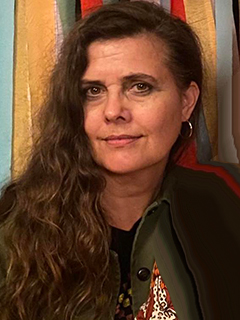
Rachel’s research explores the materiality of sound through Māori and Western ontologies, epistemologies, and technologies. These are considered through various creative sonic practices: installations, composing, recording, writing, and collaborating as a sound designer and/or composer for moving images and live performance events. Her research also sits in the space of indigenising mainstream tertiary education and how technologies and innovation are applied in the field of creative technologies.
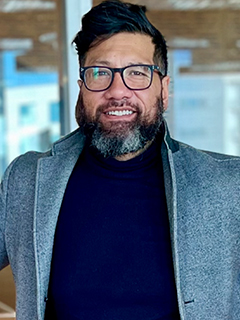
Junior is a senior lecturer and the academic advisor of the maritime engineering programme. His research specialisation is in the manufacturing science of processing complex materials such as titanium, stainless steels, additively manufactured metals and polymers, and composite materials. Product applications for use in aerospace and bio-medical industries have been a key focus. He has published numerous Journal papers in engineering, manufacturing, teaching learning and design, and STEM high school education.
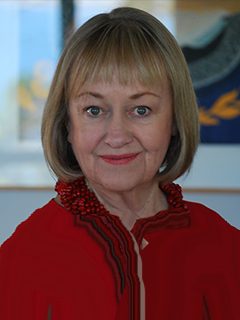
Christina lectures and supervises students in screen production and screenwriting. Her teaching is based on a foundation of many years of practice in the screen industries of New Zealand and Australia. Her PhD research examined the work of Indigenous feature film producers. Christina recently completed a term as the government-appointed Chair of Te Puna Kairangi, a government initiative supporting the New Zealand screen production sector through COVID-19. She has served on several industry boards, including the New Zealand Film Commission and Ngā Aho Whakaari (Māori in Screen).
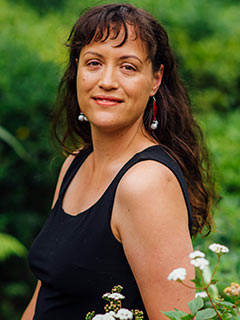
Jade is the leader and founder of Matakohe Architecture and Urbanism, a kaupapa Māori design studio in Whangārei. Her main interests are the decolonisation of architecture and urban design, the growth and re-establishment of papakāinga, and the development of design methods to support the sovereignty of hapū. She is also a part-time lecturer at Huri Te Ao - School of Future Environments at AUT and a member of the Auckland Urban Design Panel.
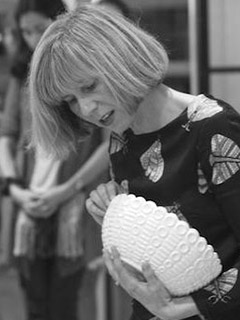
Rachel was born and raised in Tāmaki Makaurau and is the proud mother of one son. Her mum's whānau hail from Ahipara and Croatia. She is the Kaiwhakatere for the School of Art and Design and teaches Mahitahi: Collaborative Practices, spatial design and postgraduate courses. Her teaching and research interests examine how constraints can be employed to promote the use of creative thinking in design studio contexts to address topical social and environmental concerns. Rachel also has a ceramic design practice.
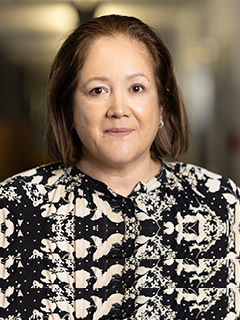
Naumai is the current Head of Faculty Operations within Te Ara Auaha and before that was Head of Finance and Planning for five years. She holds a Bachelor of Business with Honours (First Class) from AUT and is a qualified Chartered Accountant (ANZ) and Certified Practicing Accountant (Australia). Naumai is currently studying toward a DBA (Doctor of Business Administration) at the University of Otago, with an interest in Māori professional staff experiences working within the tertiary environment.
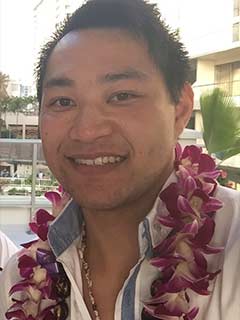
With nearly 13 years of experience in the Aotearoa events industry, Ben has a proven background in delivering a diverse range of events. Ben is also driven by future aspirations to complete a master's degree from 2026 and a PhD in the arts, with a particular interest in interweaving the forever-evolving tech environment into event management, and exploring the drivers behind delivering successful, purposeful events and cultural customs.
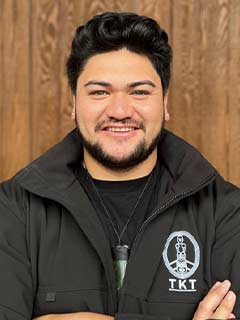
Toiroa was raised in Ōpōtiki and is a lecturer at Te Ipukarea Research Institute within the Faculty of Design and Creative Technologies at AUT. Toiroa holds a PhD in art and design focusing on Māori storytelling and has received prestigious awards, including the AUT Vice-Chancellor’s Scholarship and AUT INTERNZ scholarship to intern at Sundance Los Angeles. His work champions Indigenous narratives, reconnecting communities with their culture, language and history.
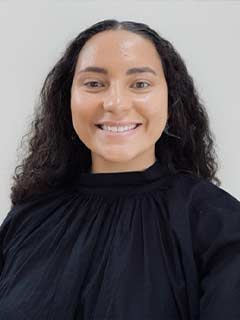
Peta is a lecturer with Te Ipukarea Research Institute. She has a background in teaching Māori development, language and customs and holds a Bachelor of Health Science (Honours) in Psychology (First Class). Peta is studying towards a PhD written in te reo, concerning the revitalisation of traditional Māori marriage practice and ceremony captured through the pedagogical approach of Oriori and Pūrākau.
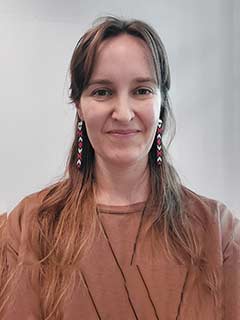
Rebecca is a researcher and lecturer at Te Ipukarea Research Institute and teaches on the course Mahitahi | Collaborative Practices. Her research expertise is in music psychology and cognitive development, and her current research explores music, performing arts and ngā toi Māori participation in relation to health and wellbeing outcomes, whanaungatanga, and in particular music's role in developing and strengthening social bonds. She is also an affiliated post-doctoral researcher with the Music Lab at the University of Auckland.
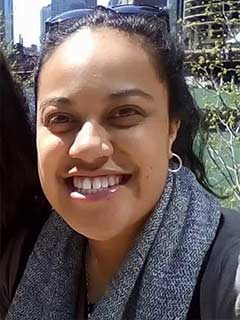
Nogiata is a postdoctoral fellow in Te Ipukarea Research Institute. She hails from the Rock of Polynesia – Niue from the villages of Lakepa, Makefu and Alofi, and has familial ties to Tahiti. She holds a Certificate in English Language Teaching to Adults (CELTA), a Bachelor of Arts in English and New Media Studies, a Postgraduate Diploma in Arts with a minor in Pacific Studies, a Master of Arts (First Class) and a PhD; all received at AUT. The completion of her doctoral thesis looked at receptive bilingualism of vagahau Niue among first-generation New Zealand-born Niue living in Aotearoa. Her research interests lie in language revitalisation, bilingualism, Indigenous languages and methodologies, and Indigenous storytelling of the Pacific through languages.
Whakapā mai
Contact us
Email us to get in touch:
Tania Smith-Henderson
Te Ipukarea Research Institute
Faculty of Design and Creative Technologies at AUT
dect@aut.ac.nz